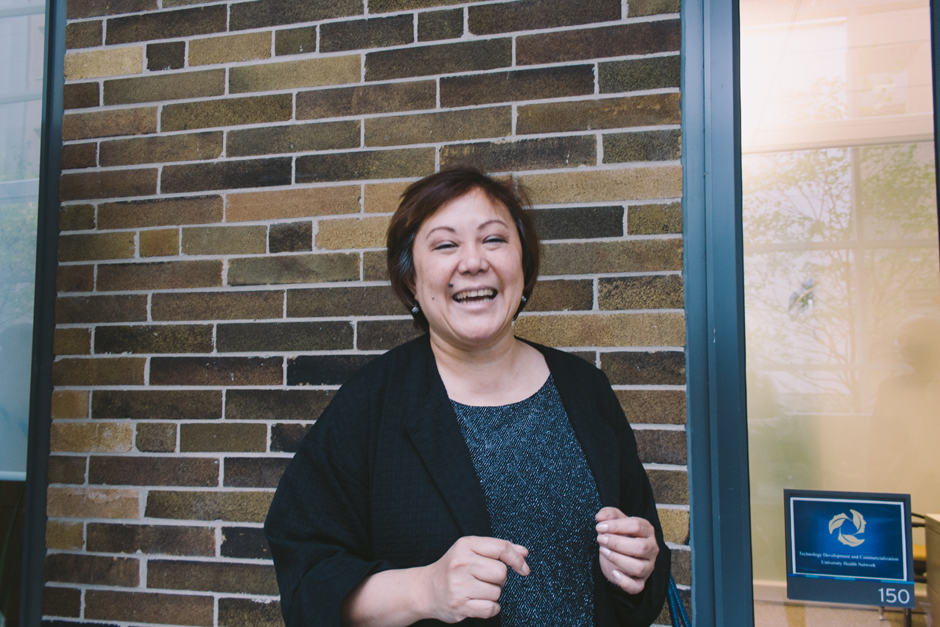Dr. Cynthia Goh is quite the Renaissance woman. She is deeply invested in transforming scientific research into tangible technology and in the education of scientist-entrepreneurs. She is the scientist that invented the technique of diffraction-based sensing for drug discovery and medical diagnostics. Beyond being a familiar face at the Department of Chemistry, she is also a professor at the Institute of Medical Science, the Munk School of Global Affairs, and the director for optical sciences at the University of Toronto.
Goh is also well known for her highly acclaimed Entrepreneurship 101 course at MaRS, which has an attendance of over 1,500 participants annually. In 2012, she started the Techno2010 program to help scientists build companies at U of T. Goh also teaches IMC200, an undergraduate course detailing the basics of innovation and entrepreneurship at U of T.
The Varsity: How did you initially become involved with scientific entrepreneurship? Were you always interested in it?
Cynthia Goh: I effectively created the term [scientific entrepreneurship]. I am a professor of chemistry… but around 1998–1999 I started feeling, why [was there] a gap in moving knowledge into the world? I knew my results were useful, but I wanted to prove it. That is when I created my first company with my students.
In 2004, I thought that I would like to share this experience with students, because it really broadened my own horizons. So, I created a seminar series called Introduction to Scientific Entrepreneurship. I think we have amazing students [at U of T], and we provide them with great preparation in the fundamentals, and we get great research results. But there is a gap in how the students enter the world. Quite frankly, we lose a lot of our students to the US, because they don’t find really interesting jobs out here. So, I thought, why don’t we create our own jobs?
And in fact, there is a shortage of high-tech companies in Canada. Considering the amazing research results we create, there’s no big technology cluster here. Canada is still built on pulp and paper and cement and fisheries and oil… we’re very much a resource-based country. So, I took it very seriously that we need to create technology companies. In 2004, it started dawning on me that it’s really the students are the appropriate vectors for entrepreneurship as they are still looking for jobs. The faculty already has a job.
TV: How did your undergraduate experiences inform your career choices?
CG: I did my undergrad in the Philippines. It is a very different kind of experience from what you guys have here. We didn’t have much choice. You either did chemistry, physics, biology, mathematics or engineering… I envy the undergraduates we have here because we offer you a lot of choices, a lot of programs. We have excellent fundamental academic background, but there’s a lot of opportunity to do something else, and that wasn’t available where I was from. So there’s extra opportunity, which in some sense may be very confusing. I see a lot of students who… don’t have time for anything, because there [are] so many things. It can be overwhelming to have that choice.
TV: What are the highs and lows of being an entrepreneur?
CG: The one reason I encourage entrepreneurship is because it gives you an extra option. You can still always apply [for] a job, but you can also consider creating a job for yourself. So probably that’s, for many people, the biggest high: I don’t have a boss. It’s very exciting that you can control where you are going, but, at the same time, it’s also the low because now you are responsible. You cannot just default on somebody else taking care of you, you are in charge. And that’s both really exciting and really scary.
TV: In your opinion, how important is entrepreneurship to scientific research and innovation?
CG: Well, that’s really two different questions. You can do scientific research completely [by itself]… The goal of scientific research is to create new knowledge, and that’s really very important, regardless of entrepreneurship. For us to understand how the universe works is very important and very satisfying as well. However, for some of us, we want to see these discoveries lead to better quality of life. That’s where entrepreneurship plays a role — if you start thinking [about how] to turn that knowledge to something that benefits the world in a short time span. It’s an option thing, I can do this — or I can do that.
TV: Many students want to be involved in scientific entrepreneurship but do not know how to tap into the field. What advice would you give these students?
CG: If it’s going to be scientific entrepreneurship, then you better be good at your science first. So, the students we take are people with very strong technical grounding, because if you are going to do something about new technology, then you better understand that technology very well. So I would say do your science background, because science is studied vertically; you cannot just know [or] study high-level science without the fundamentals.
So, get good grounding in the fundamentals, and then you can dream about technology that will change the world. This is why typical people in Techno are graduate students, not undergrads. We have undergrads — it’s not like we ban undergrads, but we want to make sure you have a solid technical grounding before you can become a technical entrepreneur.
The other thing, too, is like in anything, it’s about practice: you want to be an entrepreneur, you have to practice your entrepreneurial skills early. So get involved in organization and get involved in activities that are beyond the classroom because then you practice your skills in dealing with people, which are really important.
This interview has been edited and condensed for clarity and length.


